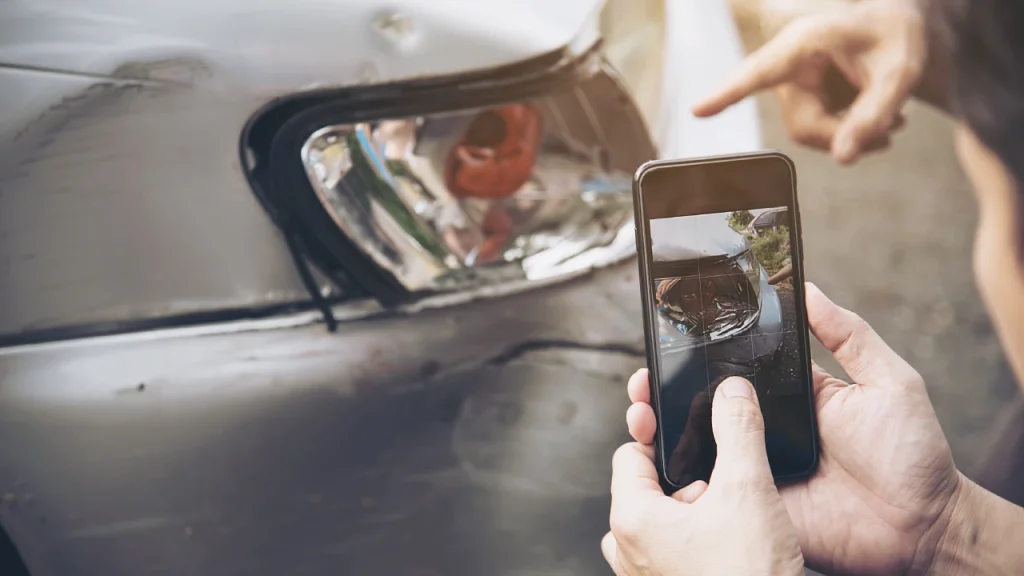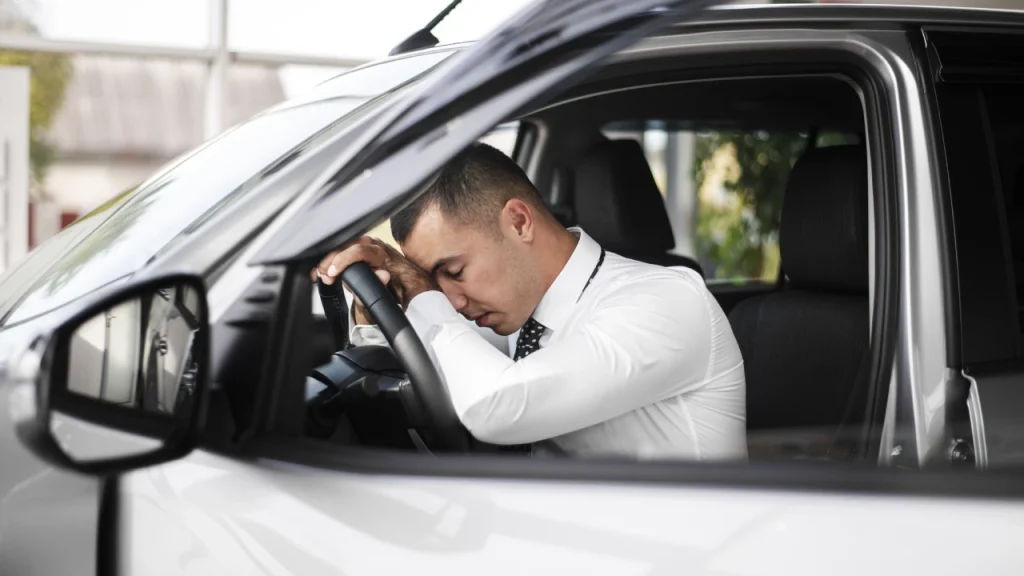Understanding Rideshare Accidents
The rise of rideshare platforms like Uber and Lyft has transformed how residents get around — but it’s also introduced new challenges when accidents happen. Unlike typical car crashes, Uber and Lyft accidents involve layers of legal complexity. You’re not just dealing with another driver’s insurance policy; you’re up against multibillion-dollar corporations with their own legal teams and policy loopholes.
According to a study by the University of Chicago and Rice University, rideshare services have contributed to a 2–3% increase in traffic fatalities since their introduction, which equals roughly 1,000 additional deaths per year nationwide.
If you’ve been injured while riding in, driving for, or hit by an Uber or Lyft vehicle, it’s vital to understand your rights — and to work with a law firm that knows how to navigate these cases with precision.
Who’s Liable in an Uber or Lyft Accident
Liability in a rideshare accident isn’t always straightforward. Depending on the driver’s status at the time of the accident, different parties and insurance policies may be responsible for covering your damages. Here’s a general breakdown:
App Off:
The driver’s personal insurance applies.
App On (No Passenger):
Uber or Lyft provides limited third-party liability coverage (usually $50,000 per person, $100,000 per accident).
App On (With Passenger or En Route):
The full $1 million liability coverage kicks in.
This makes it critical to determine what the driver was doing at the time of the crash. Our attorneys conduct in-depth investigations — pulling trip data, rideshare records, and digital logs — to ensure the correct insurance applies. We also know how to challenge denied claims and navigate disputes over driver status.
Common Causes of Uber and Lyft Accidents
Rideshare drivers often operate under high pressure — navigating traffic while managing their app, finding passengers, and staying within strict time windows. This multitasking can lead to dangerous driving behavior. Some of the most common causes of Uber and Lyft accidents we see include:
- Distracted driving (e.g., checking the app, GPS, texting)
- Fatigue from long driving shifts
- Speeding or aggressive driving to meet ride quotas
- Inexperienced drivers unfamiliar with roads
- Unsafe pick-up or drop-off locations
What to Do After a Rideshare Accident
If you’re involved in a crash while using a rideshare service — whether as a rider, driver, or third-party motorist — it’s important to act quickly to protect your rights. Here’s what you should do immediately after the accident:
Call 911 and request medical assistance if needed.
Get the names, contact info, and insurance details of all parties involved.
Take screenshots of your Uber or Lyft trip, including timestamps.
Document the scene with photos or videos (vehicles, street signs, damage).
Do not accept early settlement offers or give recorded statements to insurance without legal guidance.
Rideshare companies may try to limit their financial exposure by shifting blame or delaying claim processes. Having a legal advocate from the start can protect you from tactics designed to reduce your compensation.
Injuries We Commonly See in Uber and Lyft Crashes
Rideshare crashes often occur in dense traffic or urban corridors, where even a low-speed collision can cause significant injury. We’ve represented clients who suffered from:
- Whiplash and soft tissue injuries
- Broken bones and fractures
- Head injuries, including concussions and traumatic brain injuries (TBIs)
- Spinal cord injuries
- Internal bleeding or organ damage
- Post-traumatic stress disorder (PTSD)
Why Uber and Lyft Accident Cases Demand Aggressive Legal Action
Uber and Lyft have revolutionized urban transportation, but with innovation comes risk — especially when corporate policies and layered insurance structures stand between injured victims and justice. Accident victims often discover too late that the rideshare company’s liability depends entirely on the driver’s status at the time of the crash: off duty, waiting for a ride, or actively transporting a passenger. Each phase unlocks a different set of coverage rules and legal obstacles.
Worse yet, these companies have vast legal teams trained to deflect blame or push settlements that don’t reflect your real losses. Whether you were hit by a rideshare driver or injured as a passenger, you’re not just dealing with one person’s insurance — you’re entering a corporate maze built to minimize payouts. That’s why Boyadzhyan Law Firm treats every rideshare accident case with urgency and strategic force. We hold rideshare companies accountable and pursue every avenue of compensation aggressively.

What to Do After an Uber or Lyft Accident
Get Medical Help Immediately
Even if injuries seem minor, documentation is essential.
Report the Accident to Authorities
Ensure police are called and a report is filed on the scene.
Document Everything
Photos, witness contact info, rideshare app screenshots, and vehicle damage.
Avoid Statements to Insurance Adjusters
Anything you say can be used to lower or deny your claim.
Contact an Attorney Quickly
Time-sensitive evidence and complex insurance policies require early legal intervention.
Common Causes of Rideshare Accidents
- Distracted Driving – Rideshare drivers constantly check their apps for routes, messages, and updates.
- Fatigue – Many drivers work long hours or drive for multiple services, increasing the risk of exhaustion.
- Unfamiliar Routes – Unlike professional drivers, rideshare operators often rely entirely on GPS navigation.
- Rush to Accept Fares – Quick turnarounds between rides can cause reckless maneuvers or speeding.
- Poor Vehicle Maintenance – Drivers are responsible for their own vehicle upkeep, and issues may go unreported.
According to a study from the University of Chicago and Rice University, the introduction of rideshare services was associated with a 2%–3% increase in fatal traffic accidents in U.S. cities. That spike reveals just how much is at stake when corporations prioritize speed and convenience over safety.
How Rideshare Insurance Coverage Works
Understanding the way insurance coverage works in Uber and Lyft accidents is essential to recovering compensation — but it’s far from simple. Both companies offer third-party liability insurance, but the amount of available coverage depends entirely on the driver’s activity at the time of the crash. These distinctions are particularly important due to state-specific insurance thresholds.
Here’s a breakdown of the three distinct coverage periods:
Offline (App Off):
Only the driver’s personal insurance applies.
Available for Rides (App On, No Passenger):
Up to $50,000 per person for bodily injury, $100,000 per accident, and $25,000 for property damage.
En Route or Transporting Passenger:
Up to $1 million in third-party liability coverage.
However, getting access to these policies is not automatic. Rideshare companies frequently dispute the driver’s status, argue over policy timing, or redirect claims to personal insurers. At Boyadzhyan Law Firm, we cut through these tactics and build solid documentation proving liability, driver engagement status, and the full extent of your damages.

How Our Uber and Lyft Accident Attorneys Build Your Case
- Immediate Investigation: We gather crash reports, app screenshots, black box data, and rideshare platform logs.
- Driver Background Checks: We examine whether the driver had any history of violations or prior accidents.
- Medical Record Coordination: We work closely with healthcare providers to document the true scope of your injury.
- Expert Testimony: When needed, we bring in accident reconstructionists and economists to strengthen your claim.
What Compensation Can You Recover in a Rideshare Accident?
If you’ve been injured in a rideshare crash — either as a passenger, pedestrian, cyclist, or driver in another vehicle — you may be entitled to compensation for both tangible and intangible losses. At Boyadzhyan Law Firm, we fight to secure every form of recovery you’re entitled to.
You may be able to recover compensation for:
- Medical expenses (ER visits, surgery, rehab, prescriptions)
- Lost income and reduced earning potential
- Pain and suffering, including emotional distress and PTSD
- Property damage
- Loss of enjoyment of life or permanent disability
We don’t let the insurance company lowball your claim — we partner with economic and medical experts to accurately value your losses and pursue the maximum compensation available.
Contact an Uber and Lyft Accident Lawyer Today
When you’re hurt in a rideshare accident, the last thing you need is to battle corporate insurers or get lost in a maze of policy loopholes. At Boyadzhyan Law Firm, we handle all the legal heavy lifting while you focus on healing. Our attorneys understand the ins and outs of Uber and Lyft accident claims and have a proven track record of standing up to big rideshare companies.
We offer:
Free consultations with zero upfront costs
Contingency-fee representation — you don’t pay unless we win
Aggressive negotiation and litigation strategies
Compassionate support from day one through resolution
